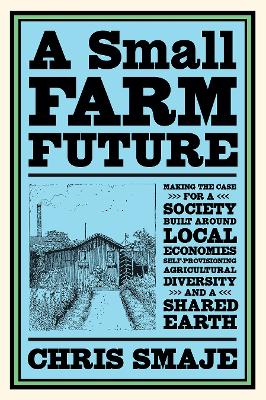Reviewed by Jeff Sexton on
This is effectively what Smaje has done here. More conservative readers may not make it even halfway into the first chapter, which is little more than a *very* thinly veiled anti-capitalist diatribe. Even more liberal/ progressive readers will have some tough pills to swallow with Smaje's ardent defense of at least some forms of private property as the chief means of achieving his goals. And at the end, Smaje does in fact manage to do at least some version of what he sets out to do - make some level of a case for A Small Farm Future. The case Smaje makes here is indeed intriguing, despite being so deeply flawed, and absolutely worthy of further examination and discussion. It seems that he is simply too blinded by his own political and philosophical backgrounds to truly make the case as it arguably should have been made. Recommended.
Reading updates
- Started reading
- 26 August, 2020: Finished reading
- 26 August, 2020: Reviewed
